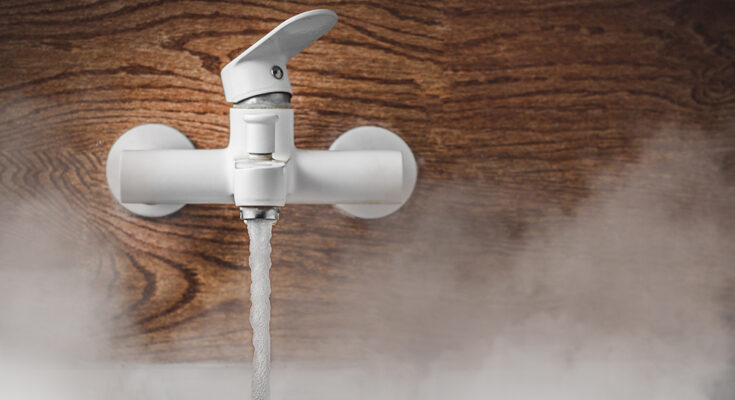Compared to traditional heaters, which consume a lot of energy, tankless water heaters tend to be more affordable. Tankless water heaters don’t need a storage tank to provide hot water, making them simple to install. Different names for tankless water heaters include inline water heaters, demand water heaters, instantaneous water heaters, instant water heaters, and point-of-use water heaters.
How do tankless water heaters work?
Unlike conventional water heaters, tankless water heaters use a water flow sensor to regulate the water supply into the heater. Later, an automated ignition of the burner causes the water to flow via the heat converter and rapidly heat it to the desired temperature. When the warm water tap is shut off, the procedure ends automatically. Turning a dial will allow you to change the temperature. Tankless water heaters have the advantage of never running out of hot water.
Benefits associated with tankless water heaters
Tankless water heaters’ main benefit is that they only heat water when it is actually needed, saving energy when they are idle. The cost of heating can therefore be reduced by up to 20%. The possibility of bacteria development is reduced as a tankless water heater doesn’t keep hot water. Other significant benefits of tankless water heaters are their low cost, minimal maintenance requirements, and extended equipment lifespan. Tankless water heaters in two different varieties are available: electric and gas/propane. A wide range of sizes and competitive pricing are offered for tankless water heaters.
Drawbacks associated with tankless water heaters
Tankless water heaters can have certain drawbacks. They are unable to supply enough hot water for many simultaneous uses, such as showering and washing clothes simultaneously. These heaters’ potential to leak when exposed to cold conditions is another concern. Tankless water heaters also demand more immediate electricity than conventional water heaters. Tankless water heaters are often used for residential and commercial applications despite their drawbacks, and customers should consider the benefits and cons before selecting the best heater for their requirements.
Considering the cost factor
When selecting a new water heater, a common concern is whether tankless water heaters are worthwhile. Cost is a crucial factor to take into account when selecting new plumbing systems and equipment since replacing or fixing plumbing gear can be quite expensive, especially when labor expenses for a skilled and licensed plumber are included.
Tankless heaters provide greater financial savings in hotter areas and in homes with low energy demand. Tankless water heaters’ value relies on a number of factors, including the homeowner’s location, the cost of installation there, and how frequently their household needs hot water.
To conclude
Finding a competent and experienced plumbing provider is crucial for your installation. Verify that they have the state-required insurance and licence.




